Hair loss can be triggered by both ageing and genetics. The best therapies for hair loss depend on the underlying cause.
Principal Causes of Hair Loss
Some or all of the
following may contribute to hair loss:
- Family background
- Hormone modifications
- Irregular hair loss
- Scalp infections
- Other skin conditions
- Disorder of hair pulling
- Medications
- Some hairstyles
Some people are concerned about their hair loss. Certain
habits and therapies may strengthen or regrow hair, depending on the reason for
hair loss.
This article offers numerous suggestions to stop hair
loss and regrowing hair.
1. Use coconut oil for damaged Hair
According to a 2018 study, coconut oil may aid in preventing
hair loss brought on by UV damage or grooming practices. To prove this, however,
more study is required.
The scalp can be massaged with coconut oil to strengthen hair
and prevent breakage.
2. Give your scalp a massage
Regularly massaging your scalp with heated oil helps increase
blood flow there and strengthen the hair follicles. Additionally, it works
wonders for dandruff and scalp infections. For massage, you can use sesame,
coconut, or almond oil. For maximum efficacy, use almond oil and coconut oil.
3. Aloe vera
4. Treating Hair Loss with Eggs and Amla
Amla, also known as gooseberry, is an excellent source of
antioxidants and vitamin C, which replenish collagen and shield hair from oxidative
stress. It guards against hair ageing too soon. Amla can be eaten as candy or
as a drink. Any hair pack can be made externally by mixing its powder with it.
5. Use Hair Dryers Occasionally
Avoid using hair dryers, curling irons, or straighteners since the heat they produce harms hair follicles. Wet hair is delicate. The hair & cuticle are compressed when in an encounter with any iron implement.
The water within your hair shaft boils when exposed to high heat from hot curling irons, hot brushes, or blow dryers, and the moisture, or "water of hydration," is expelled as steam.
The result is a dry, fragile, and
crack-prone cuticle. Continuous heating and drying hasten the thinning of
hair. Adopt the new routine of naturally drying hair rather than wrapping it in
thick towels.
6. Healthy Eating for Hair
The protein that forms the barrier enclosing the hair shaft is called keratin. A diet low in protein promotes hair thinning and ultimately hair loss.
Legumes, poultry, and fish are excellent sources of protein. Omega-3 fatty acids are found in fish, avocados, pumpkin seeds, and walnuts and are known to encourage hair development. Hair growth is aided by adequate levels of iron in the blood, vitamin A, folic acid, amino acids, and biotin.
Collagen is produced with the assistance of vitamin C. Dark green vegetables, eggs, yoghurt, guava, and yoghurt are all significant sources of micronutrients for hair.
7. Onion Juice
Onions' antibacterial qualities aid in the prevention of
scalp infections, and their sulphur concentration enhances blood flow to the
hair. It regulates hair loss and encourages hair growth.
Grind the onions and squeeze the juice from it to obtain
onion juice.
Apply the onion juice-dipped cotton ball to your scalp.
After letting it sit for 20 to 30 minutes, rinse it out with
warm water and a gentle shampoo.
Once a week, perform this step and observe the difference.
8. Don’t comb wet hair
Wetness makes our strands more brittle and breakable than
ever. Because of this, it's crucial to use a broad comb or to let them air dry
before doing any kind of style.
9. Avoiding Crash Diets
Diets that are extremely low in calories can deprive the body
of vital nutrients, including those needed for healthy hair like zinc, fatty
acids, and protein. Rarely do crash diets lead to long-term weight loss.
A 2019 review of the literature found that those who lose
body cell mass as a result of losing weight from a low-calorie diet may have
hair loss. Temporary hair loss may be the outcome of this.
10. Keeping hair safe as you sleep
The rubbing, tangling, and tugging that leads to hair damage
can be avoided by using a silk or satin pillowcase.
Going to bed with wet hair could weaken and damage the
strands. Hair is at its most fragile when wet.
11. Get Regular Trims
Regular hair trimming reduces the risk of damage and brittle split ends, which can advance up the hair shaft and toward the scalp.
Therefore, even though it may seem
counterproductive to your objective if you're attempting to grow out your hair,
getting frequent haircuts may really aid in this process by keeping your hair
healthy and preventing breakage.
12. Consume a lot of Water
13. Use hair
supplements
Supplements can help if you don't get enough protein and iron
from your diet. The vitamins Biotin, Viviscal, and Omega-3 fish oil are
advised.
But before taking any supplement, consult your doctor first.
Self-medication can be dangerous.
14. Consistently use oil treatments
Additionally, it expedites hair development and lessens breakage. Any natural oil should be warmed up to a comfortable temperature. After letting it cool for a little while, gently massage it into your scalp.
After an hour, shampoo while wearing a shower cap.
15. Acquire a water filter
If you shower, think about adding a water filter. By doing
this, you can get rid of the germs, heavy metals, and chlorine that damage and
break hair.
Conclusion
There is a vast array of natural therapies to choose from if you
want beautiful hair. A proper hair care regimen is essential, as is avoiding
friction and stress on the hair.
A few natural remedies, a good diet, an exercise programme, and the right beauty advice can stop hair loss. Changes in lifestyle can stop hair loss.





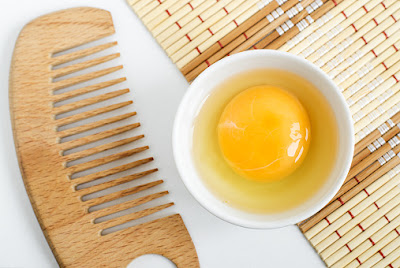
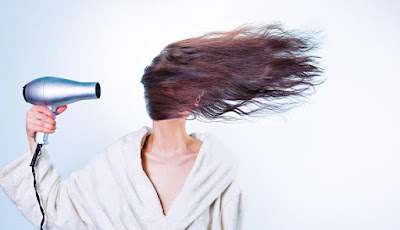


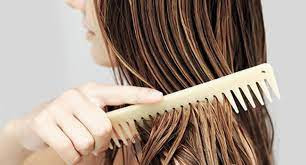
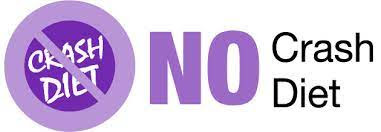

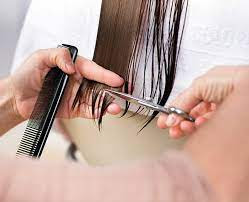
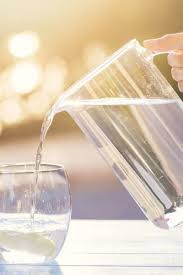
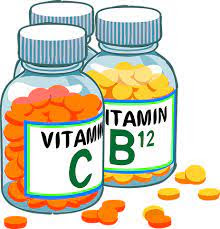


Will definitely try this 😭
ReplyDeleteVery helpful
ReplyDeleteI love your blogs please keep posting ❤️💗
ReplyDelete